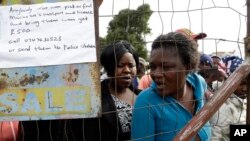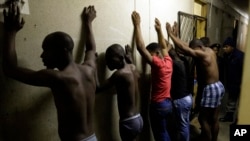As the wave of xenophobic attacks dies down in South Africa, foreigners who had been driven from their homes are slowly returning to some communities where the situation remains tense.
But most returnees are not sure whether this is the end of the attacks. Victims in some cases were burnt alive using vehicle tyres - a strategy used by political activists during the struggle for freedom in South Africa and was commonly referred to as neck-lacing.
Zulu King Goodwill Zwelithini has been blamed by many people for allegedly igniting the xenophobic attacks that displaced at least 5,000 people and left at least seven dead, according to official figures.
King Zwelithini recently reportedly convened an imbizo, a special Zulu meeting called by the king or traditional leaders, to map out strategies on important issues, and ordered his subjects to, in fact, wage a war against those who attack foreigners.
The King has denied that the words were meant to order his subjects to kill foreigners.
Zimbabwe’s ambassador to South Africa, Isaac Moyo, says Zimbabweans, who had fled flashpoints like Alexandra near Johannesburg and the port city of Durban, have gone back to their local homes with heavy hearts.
Some observers say as long as the reasons for the xenophobic attacks are not clearly identified and addressed, it will be difficult to deal with this kind of violence, which claimed the lives of 62 people in similar incidents in 2008.
Some South Africans are angry that foreigners are grabbing most of the jobs in the country. State and independent statistics indicate that most jobs in the private and public sectors are occupied by local people.
Zimbabwean academic and political commentator, Dinizulu Macaphulana, says there’s a hidden hand behind the xenophobic attacks.
Pakistan national, Salman Khan, strongly believes that the xenophobic attacks have united foreigners.
For a country that went through the truth and reconciliation commission that was tasked with discovering and revealing past wrongdoing by the apartheid government with the hope of avoiding future conflicts, some are asking if the healing process was unsuccessful.






